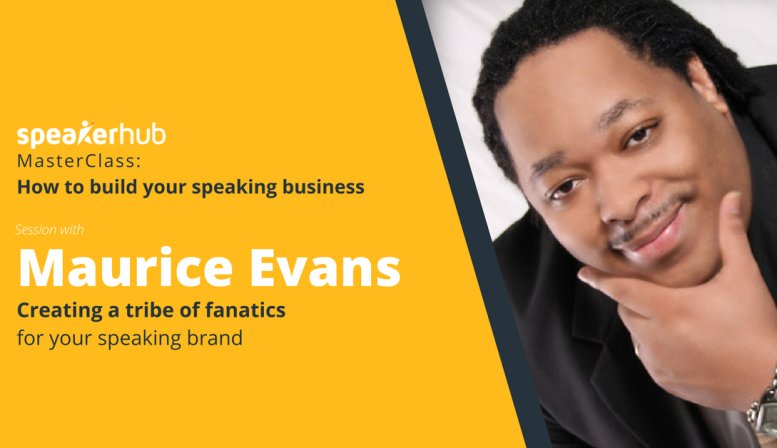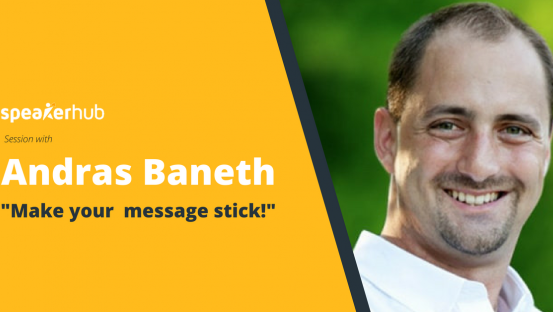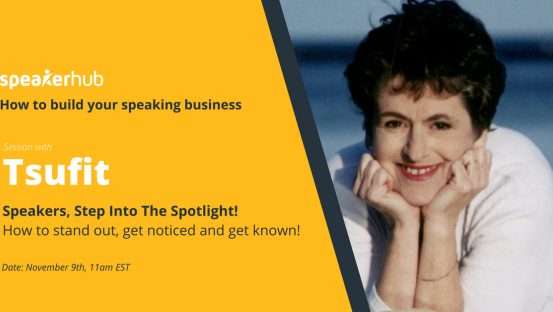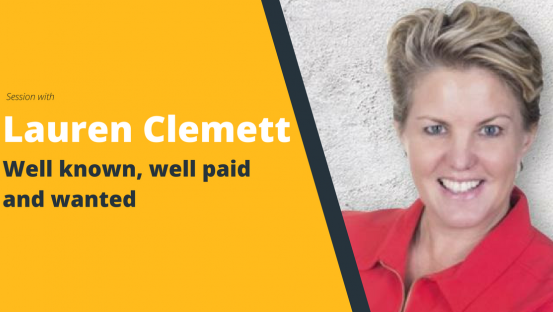MasterClass with Maurice W. Evans: "Creating a tribe of fanatics for your speaking brand"

In this webinar session, Maurice W. Evans gives a brief explanation of what a tribe is, the benefits of developing a tribe, and the history of some of the great leaders who had tribes.
See the Presentation Slides
Transcript
Maurice Evans: Today we are talking about creating a tribe of fanatics specifically for your speaking brand.
As speakers you’re not just getting on a stage, you’re not just at a platform or a podium, you’re not just on your podcast, or wherever you present your message, . you’re an entrepreneur, you’re a business owner.
By providing value, you’re going to be able to exponentially multiply your profitability. Which is important, because we have to pay the bills, and we have to be able to grow.
I am an author, speaker, coach, and trainer. I am a viral marketing expert, and as some people know, I’m a life coach and a pastor. I am also certified by Jay Conrad Levinson as a guerilla marketing trainer, and by John Maxwell as a leadership trainer.
Tribes and tribalism
Sometimes that makes us think of tribal tattoos, sometimes an Aboriginal, or a native group in a particular country.
But your tribe, if you want to think of it in another way, is your fanbase. Your tribe is an empowered fanbase, and it is a fanbase that is based off activation from you.
We know the performer Rock. The Rock has a huge fanbase. In fact, Hollywood has been very keen on him lately because of his ability to drive his fans, because of his ability to bring his fans into whatever movie he happens to be in.
As speakers sometimes we miss the fact that our tribe is important. That it is important for us to develop, and cultivate our own tribe.
That we have control of our tribe.
That we don’t just count on the people who are hiring us to speak to handle all of the marketing, and all of the promotion, and in a sense control our celebrity and our fame.
A lot of speakers struggle because they’re trying to break past a certain barrier to their success. Maybe they’re not speaking full time yet. Or maybe they are speaking full time, but they haven’t made it to five figures a month yet, or maybe they haven’t made it to six figures a month yet. One of the most powerful solutions that will eliminate the challenges you face is “tribe development”. If you create a tribe of fanatical people that are into you, and into your message, you’re going to see change.
Here’s what’s interesting. Some people think that this is complicated. Some people look at someone like my mentor, John Maxwell, or they look at Tony Robbins, and they say, “Man, those guys are huge.” First of all, those guys have been around for a long time. But second of all, their tribe development is intentional.
If we can become more intentional about developing our tribe then what happens is we are able to see an exponential change in our exposure, our response, the number of gigs that we get, and the amount of money that we get paid.
Work smart vs. work hard
We should work smart versus work hard. Some people confuse busyness with actual productivity.
Being busy is not being productive. Some people get into so much activity, and activity is not the same as accomplishment.
Working smart simply means working hard at the right things. You have the same goal, you’re still doing things to get there, it’s just that the manner in which you go about doing it makes the difference. Let’s work smart, rather than work hard, towards building our tribes.
We get caught in the entertainment, and the “art” side of it. But the reality is when we’re talking about our personal success, our personal development, being entrepreneurs, it is so much more science than it is art.
Andras: I think a lot of people would think that “you need to find the ones who will follow you, and then you will become the leader”. I think for a speaker, finding your brand, and finding your identity, and finding your niche is what is going to bring those followers to you, and not the other way around. So it’s finding the unique message that you’re putting out there that can make your speaker brand stand out. Would you agree?
Maurice: That’s absolutely correct. You have to know why you’re doing what you’re doing. You have to know the mission that you’re putting forth. You have to be clear on your brand. The brand of who you are determines who aligns with your tribe.
Andras: How do you find your unique topic, your unique brand, your unique angle?
Maurice: Your unique brand, and your unique angle has to do a lot with your story, your experience, who you are, what you have gone through. Most of the time people don’t recognize their own brand because they have self-limiting beliefs, they don’t realize that they are valuable.
Whatever education, experience, life lessons you have learned, certifications you have, topic you’re focusing on. Whatever it is, you know your story is valuable, and therefore your voice is valuable. Because your story may just be the thing that somebody needs.
Not everybody is going to connect with your story, and that is okay. The people who connect with you, and with your story are going to become the ideal people to incorporate into your tribe. We attract people that are like ourselves.
Andras: Why don’t we move onto the tribe creation. Because I understand from the audience that they’d like to see the specific steps.
Maurice: Absolutely. Let’s get to this next piece here, and then we’ll get right into that. I know people want to just jump to the steps, but this foundation is important, because otherwise you’re not going to be able to do the steps. We want you to understand the steps.
This piece right here about being the leader is part of the first step. If you don’t understand that every tribe has an “alpha leader”, when I give you step one, you won’t be able to do it. Because you’re going to say, well how do we do that? Then we’ll come right back to here. This alpha leader is super important.
Crowd vs. Audience
Here is the old way, and the common way. What most people think is the way to do things, and that’ not how you do it.
Most people think it’s all about getting a crowd. But a crowd does not necessarily mean that I have an audience.
That forces you to begin to broadcast, which is fine if you’re broadcasting to an audience. But that audience just leaves, and they go become an audience... to the next broadcaster.
There is not a foundation of tribalism there, and so that is not the fanaticism. Fanaticism is the important part of tribalism. People have to be fans of who you are, fans of what you talk about.
If you talk to somebody who likes Tony Robbins, they’re going to tell you about his new show on Netflix, and they’re going to quote him. If they’re a fan of John Maxwell, they’re going to share with you what John Maxwell said. They say it with authority. Why? Because they are fanatics, and they are part of that tribe.
This is not the same as broadcasting to an audience.
Let’s scratch out the old way, and let’s go to this new way; tribalism.
You start with the same crowd of people. But once you find those people instead of turning them into an audience, you want to turn them into a community.
This is a subtle, but huge difference. You don’t broadcast to a community, instead it looks a little bit different. Here’s what it looks like.
Interaction. Interaction is what turns a crowd into a community.
If you stand up in the middle of the crowd with your bullhorn, you’re going to get an audience.
If you get in the middle of that crowd, and you start shaking hands, and learning people’s names, and you ask them about themselves, that is interaction. You will begin to find that there is a common thread with some of the people you meet.
The people you meet will find they have common threads with each other. The common threads that you have with each other, and that you have with them form your community. But you don’t want this to be an open community. This is why it’s important to turn that community into a tribe, and that happens as a result of you being that alpha.
This is what you were talking about Andras, is that as that alpha your tribe has to have a mission. There has got to be something that you guys are doing, and that mission has to be based off of philosophical values. All of those values, and that mission, is built on the vision of the alpha.
Andras: I appreciate you sharing this insight, because we at SpeakerHub are trying to do the same, by connecting speakers with each other, and building a community.
Just as you said, in terms of marketing, and marketing yourself as a brand, and as a speaker, you don’t just shoot an email, or post something without looking at the reactions, without trying to help others, or trying to be that cog in the wheel that helps others achieve their goals.
Maurice: This is why I love what you guys are doing at SpeakerHub, because you are living this. You are creating and building a community. From that community will come a tribe.
Not everybody is going to be in the SpeakerHub tribe, but your tribe expands into the community, and your tribe influences the greater community. The community is just people who have in interest from the crowd.
The power of identity
It’s just intention. It’s about building a community. You guys have a clear vision, and a clear philosophy. S It works for the long run. People will tap into your vision because they share those philosophical values, and then they will become a part of your mission.
The other element of this is that there are social identities. People begin to identify socially with the tribe.
People begin to take their individuality, and their identity begins to get absorbed. They say, “Hey, this is us, this is who we are.” That’s why you’ve got to have that mission, that vision, that’s why you have to understand your brand’s identity.
Here is a perfect example of how we see this from a marketing perspective. Sports seems like a great example. Sports teams have a unity of the players. All of the players are identified by their team colors, and the team has a logo or insignia. There is a specific name that the team has. They may even have a mascot.
This is important, because not only does the team use these social identifiers, but so do the fans.
We see that tribes for teams are super fanatics, and there is tribal competition that comes with that, which just makes them who they are.
Do you have an insignia or a logo? Brand colors? Do you have a mascot? Do you have a phrase? Is there a name that people can call themselves by? These are some things that you can do as a part of your brand. So that you’re not just a speaker that speaks, but that now your audience is a part of the tribe.
Andras: I think this is a very important point where the tribe needs to have an identity. You need to be the one discussing it with the community in a recognizable way.
Let’s say you’re speaking on anti-bullying, and you talk in schools, or you talk at colleges. It’s not enough just to talk about this, but you try to be the one that addresses a very specific topic. People will identify, not just with your message, but with the idea, the thread that you’re creating around it.
Maurice: That’s right. The philosophy of the brand. If I can tie in with the philosophy of the brand, I’m going to get behind the mission of the brand. Then I’m going to follow the vision of the brand, the vision being presented by the alpha of the tribe, the chief of the tribe.
This is important, because if you understand what I’ve just said to you, when I’m going to give you these 5 steps you’ll be able to put all of this together on how to do that.
If you’re talking about anti-bullying then you want to make sure that you have some tools that are able to help people. That you have interaction opportunities for people to get together, and talk about solutions.
Because your tribe will police itself. Your tribe will provide content that you could never come up with creatively. They’re going to give you real world, on the ground examples of what’s happening in your mission.
We’re not speaking just to hear ourselves talk. We’re speaking because we’re trying to add value, we’re trying to help people. We’re trying to see people become better, become more, achieve more, and get healed, and get healthy, and all the things we speak on. We’re providing value.
The way to truly provide value is to have a tribe that intrinsically understands this value, whether they’re the recipient of the value, or whether they’re a promoter of that value. Because some people don’t necessarily need what you have to offer, but they’re willing to promote it to others who do.
Andras: Very often what happens is that you pick your niche where it’s not only you speaking about it, others will spread that message.
Maurice: Let’s see how to do this in five steps. Here’s how to build the tribe. It’s really, really simple.
5 Steps to Create a Tribe
Step #1: Gain (instead of demanding) authority.
How do you build authority? You become a thought leader. You start providing good content out there. You add value to people wherever you go, whatever you do. As a speaker you add value to the people even beyond the presentation. Partner with other people who have authority. Because you can ride their coattails, you can get some of their authority.
Step #2: Gain exposure.
Ways to do that is through the news media, you do that every time you get on stage, you do that through social media. Social media makes it really easy to gain exposure.
Step #3: Cast a vision.
You want to always be casting your vision. But your vision has to be tied to your philosophy. Then that philosophy has to be a part of a mission that you have for your particular tribe.
You can’t just randomly vision cast, you have to have a specific vision that you’re casting so that people can rally around your vision. If you don’t have a vision then people are just going to fall away.
Step #4: Mobilize your tribe.
You have the ability to mobilize your tribe. The benefit of this is, say, you want to speak somewhere, there’s an event coming up. If you have a tribe that you can mobilize then you can have 100 people, 1,000 people, even just a dozen people call and say, hey, I’d like to see this speaker there.
That is powerful when you have people requesting you. When somebody wants to hire you, and they say, well, your fee is a little expensive. They’ll go, if you’re worth it then you go and get your tribe to send us 1,000 emails, or 1,000 tweets, or 1,000 Facebook messages/comments.
When you mobilize your tribe to go and buy your book, you become a bestseller. Mobilizing your tribe can only happen if you’ve done the other three steps.
Step #5: Monetize your tribe.
After you mobilize your tribe, it’s easy to monetize your tribe. This all comes down to you being able to build authority, gain exposure, cast your vision, mobilize your tribe. Then that enables you to monetize your tribe. Tribes will make you more in demand, more valuable, and more profitable.
Different people have a different manner, that’s the art side. The science side is always the same. The science side has to do with your vision. The science side has to do with your mission, your purpose, and your philosophical beliefs. Everybody on this call can do that, every single person.
Having others speak for you means you don’t have to sell, it means they will sell for you. Think about how many people recommend that somebody go to a Tony Robbins conference, but have never been to one themselves.
You don’t ever have to sell if you create a tribe, because as you said, they speak for you. Why? Because they understand your philosophy, and so you put them on a mission, you mobilize them.
You monetize them, because whatever it is that you have to offer that’s of value, they are promoting you, they’re making your name bigger. They’re promoting your books, they’re buying books for people, recommending conferences. These are the things that your tribe does on your behalf. That’s the power of tribe. An audience doesn’t do that. An audience is a consumer.
Links






